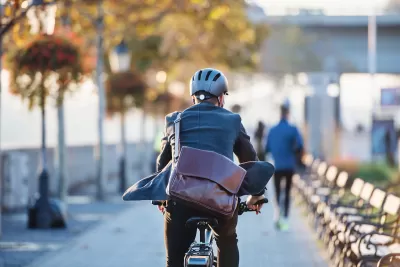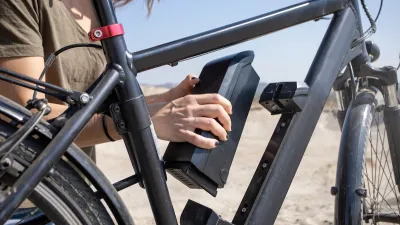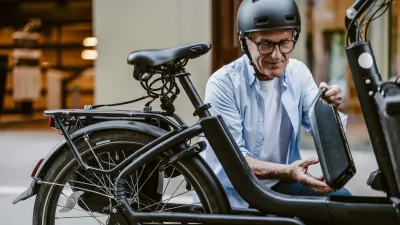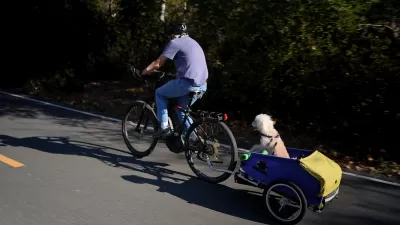How to spot a bad-faith e-bike story.

In an article in Streetsblog, Kea Wilson describes four common tropes used in news articles to denigrate e-bikes in what Wilson calls “a rapidly-emerging genre: the Bad E-Bike Article.”
The first trope—no doubt familiar to all cyclists—is victim-blaming. Using a series of New York Times articles by Matt Richtel as an example, Wilson notes how Richtel blames the death of a 15-year-old boy on the fact that he was riding an e-bike, rather than examining the role of the driver or the 55 mile-per-hour speed limit on the street.
“Notably, his reporting also doesn't include any information about whether or not the driver was cited; the design, speed, or weight of the work van that motorist drove; the actual rates of e-bike "accidents" in the town where Champlain Kingman was killed, which Richtel claims are "on the rise"; or even whether those rates are explained by the rising popularity of the vehicles themselves or how drivers behave around them.”
The other “bad e-bike” tropes: “Spreading myths about modified e-bikes,” “Conflating unsafe teen drivers with unsafe teen cyclists,” and “Ignoring all the good e-bikes can do.” For Wilson, “Perhaps the worst thing about the Richtel series, though, is what's not in it: any mention of all the good that e-bikes are already doing for the world.”
E-bikes may have their issues. But “The frank truth is that, of all of the dangers the Times attributes to e-bikes — grisly crashes, lawless vehicle owners modifying their rides to be more deadly, lives abruptly stolen from children and teens — car drivers and the auto-centric systems that surround them are overwhelmingly more likely to be the culprit, as evidenced by the fact that nearly every crash mentioned across the four stories involves a driver.”
FULL STORY: Four Ways To Spot a Bad E-Bike Article

Alabama: Trump Terminates Settlements for Black Communities Harmed By Raw Sewage
Trump deemed the landmark civil rights agreement “illegal DEI and environmental justice policy.”

Study: Maui’s Plan to Convert Vacation Rentals to Long-Term Housing Could Cause Nearly $1 Billion Economic Loss
The plan would reduce visitor accommodation by 25% resulting in 1,900 jobs lost.

Planetizen Federal Action Tracker
A weekly monitor of how Trump’s orders and actions are impacting planners and planning in America.

Waymo Gets Permission to Map SF’s Market Street
If allowed to operate on the traffic-restricted street, Waymo’s autonomous taxis would have a leg up over ride-hailing competitors — and counter the city’s efforts to grow bike and pedestrian on the thoroughfare.

Parklet Symposium Highlights the Success of Shared Spaces
Parklets got a boost during the Covid-19 pandemic, when the concept was translated to outdoor dining programs that offered restaurants a lifeline during the shutdown.

Federal Homelessness Agency Places Entire Staff on Leave
The U.S. Interagency Council on Homelessness is the only federal agency dedicated to preventing and ending homelessness.
Urban Design for Planners 1: Software Tools
This six-course series explores essential urban design concepts using open source software and equips planners with the tools they need to participate fully in the urban design process.
Planning for Universal Design
Learn the tools for implementing Universal Design in planning regulations.
Caltrans
Smith Gee Studio
Institute for Housing and Urban Development Studies (IHS)
City of Grandview
Harvard GSD Executive Education
Toledo-Lucas County Plan Commissions
Salt Lake City
NYU Wagner Graduate School of Public Service





























